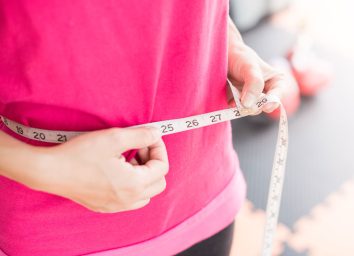What I Learned From Tracking My Food Intake Every Day

Do you ever stop to think about what you’re eating? I mean really think about what you’re eating: Why did you choose that chicken dish? Did you just order the first menu item that sounded good?
It’s easy to mindlessly eat every meal. We have so much else going on in our lives that spending time understanding how much food or which foods we eat at any given moment seems like an extra responsibility we just don’t need. I’ll admit that even as an editor for a nutrition website, I sometimes succumb to the “food is fuel” motto and just end up eating whatever I can get my hands on the quickest.
Besides the tediousness of this additional evaluation, I reckoned that because I’m a relatively healthy person of a normal weight, I didn’t really need to pay attention to what I was eating. But that’s not the best way to go about your diet.
When one of the classes I was taking for the Cornell University Healthy Eating and Living Nutrition Certificate asked me to track my food intake for a week, it taught me lessons I never knew I could learn.
So, I set out to track my food intake every day for a week—calories, fat, and all. Keep reading to see what I learned, and if you’re considering doing the same, follow up this read with these 10 Tips for Keeping a Food Journal for Weight Loss.
Tracking Homecooked Meals Takes A Lot of Effort

I’ve always heeded the advice to cook more at home, eat out rarely, and keep intake of processed, packaged foods to a minimum — but boy is that tiresome to track! I used how much butter here? And what about the amount of olive oil I drizzled on those veggies? Was it two tablespoons or three? My food tracking life was particularly harder because I’m someone who makes up recipes from scratch and doesn’t measure ingredients.
Eat This! Tip: Record as you cook so you don’t have to spend more time later in the day to figure out what you had made earlier. Plus, you’ll be more accurate this way.
But You End Up Recording Recipes!

The silver lining here is that I actually started to keep a record of my favorite meals and how I make them. This became a useful tool in future weeks when I was searching for inspiration for what to cook for dinner.
I Kept to Serving Sizes
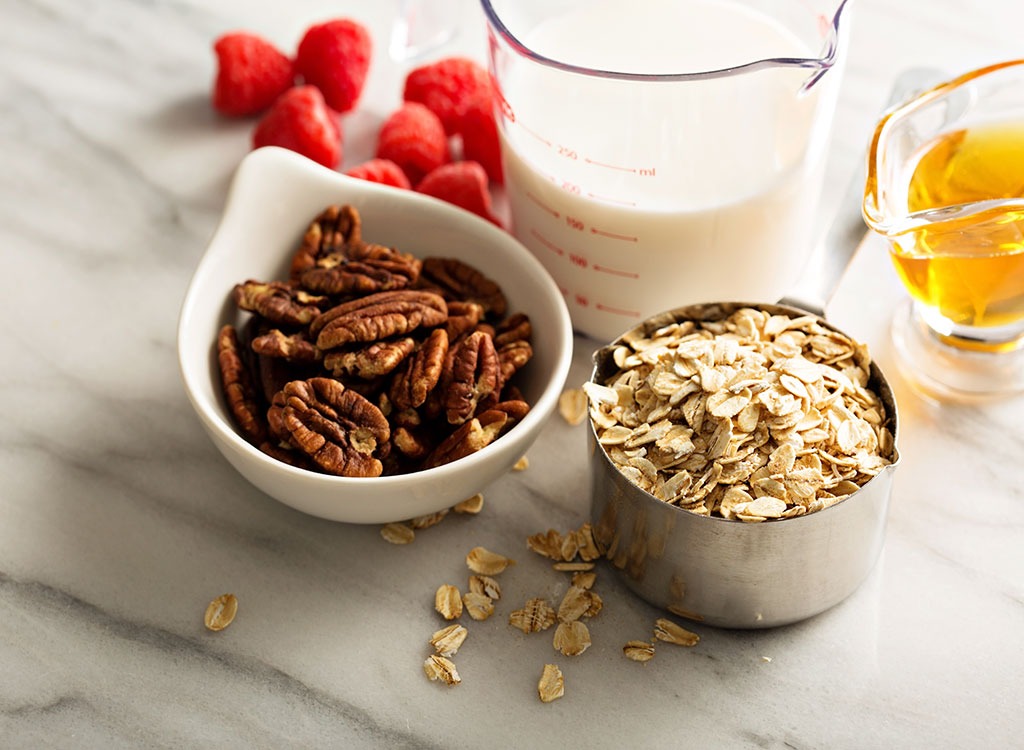
To make tracking calories simpler, I found myself sticking to serving sizes instead of eating as much as I wanted an item. This helped me avoid calculating fractions (I like math, but this is tedious), and it also helped me control portions.
I Had to Decide if Treats Were Worth it
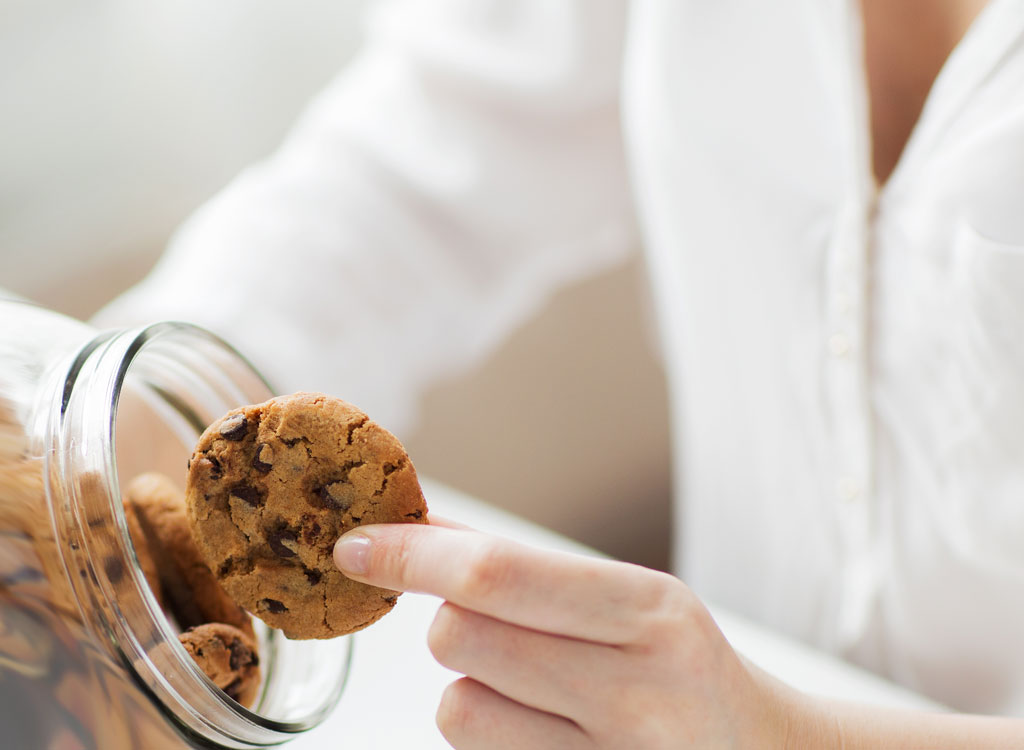
The great thing about tracking your food intake is that you have to hold yourself accountable for every food you put in your body. Plus, you have to ask yourself the question: Is eating this food worth the effort of tracking?
Do I really want to track a handful of Peanut M&M’s I could grab from my building’s front desk? How many did I actually take? Should I finish off that bag of brittle sitting half-eaten on my desk? After a couple days of tracking my food, I realized that most of the foods I was questioning whether to eat were often unhealthy. Ultimately, I decided they weren’t doing my body any favors and I cut them out of my diet.
I Was More Mindful of Whether I Was Eating for Hunger or Convenience
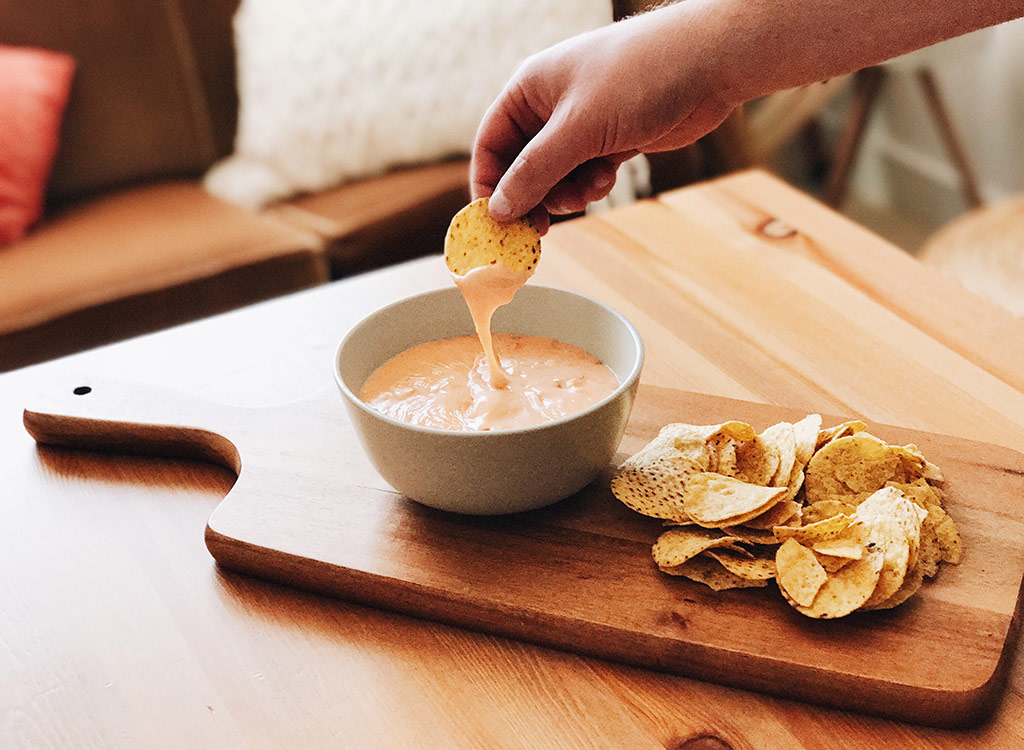
Until I tracked my food during this experiment, I never realized how many opportunities I have to eat food every day. And most of the time, I’ll casually eat it without thinking twice. Why? Simply because it’s there—not because I’m hungry. This experiment taught me to be more mindful about listening to my body to dictate when it was time to eat rather than just seeing food and eating it. If you feel yourself snacking constantly during the day, see if it’s due to one of these 30 Reasons Why You’re Always Hungry.
It is Hard to be Accurate

Keeping a food diary is a good idea to draw your attention to what you’re eating, but it’s not an easy feat when you’re trying to faithfully record your daily intake of food. In order to accurately track everything you eat, you really have to take the time. How much chicken did you take off that plate? What was the size of it? Did you add a little extra olive oil on your salad after dressing it with those two tablespoons of dressing? Did you grab a handful of jelly beans at the front desk before going back to work?
Mind you, my assignment was to record the number of calories I ate over the course of the day (which requires a lot of calculation), so it was much more in-depth than a food diary has to be. But still—it was a lot of work. Even a 2008 study published in the journal Contemporary Clinical Trials found that many individuals had difficulty keeping faithful records.
Eat This! Tip: You don’t have to keep a meticulous record for a food diary to be successful. “Keeping a food diary doesn’t have to be a formal thing,” said Keith Bachman, MD, a Kaiser Permanente Weight Management Initiative member in a press release. Kaiser Permanente researchers discovered that keeping a food diary can double a person’s weight loss over the course of two and a half years. “Just the act of scribbling down what you eat on a Post-It note, sending yourself e-mails tallying each meal, or sending yourself a text message will suffice,” explains Dr. Bachman. “It’s the process of reflecting on what you eat that helps us become aware of our habits, and hopefully change our behavior.”
Final Thoughts
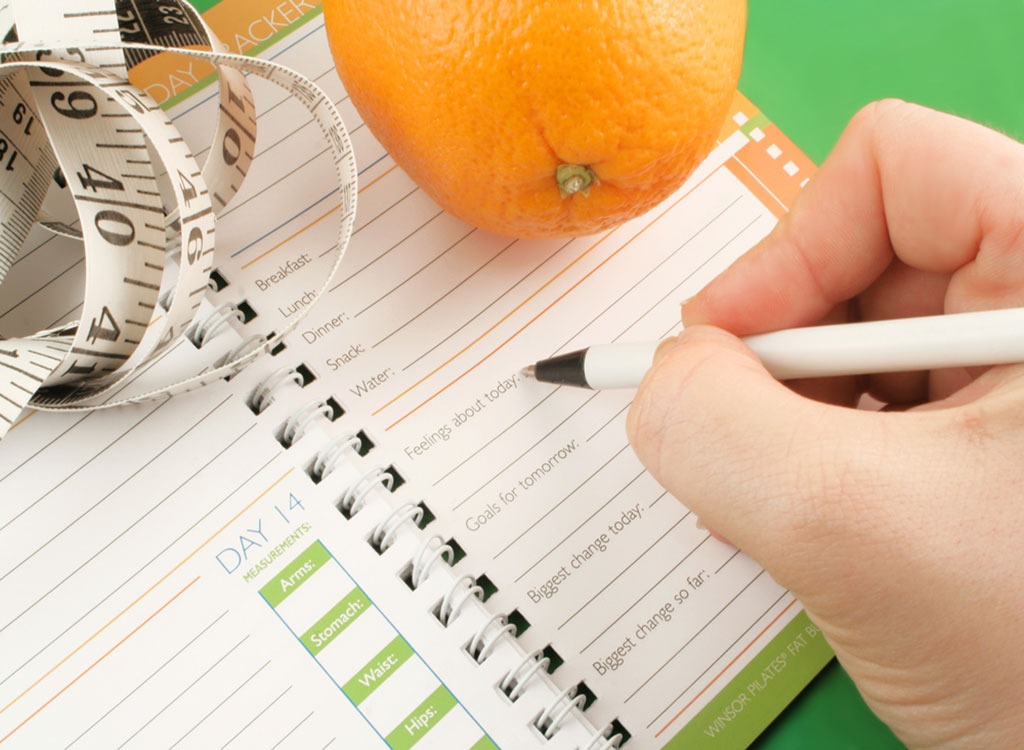
This experiment really helped me to reflect on the foods I was using to fuel my body. While I didn’t expect to make any changes to my diet going into the week, I ultimately found countless ways I could improve my eating habits. While I have no desire to meticulously track calories, I have continued to jot down what I eat every day as a mindfulness exercise (and so I can keep track of my favorite dinner ideas). Tracking your food intake is one of the first steps dietitians will have you do when you start working together. Consider trying it on your own, and then see how keeping a food record was able to play a role in How a Nutritionist Solved My Mystery Bloating.



